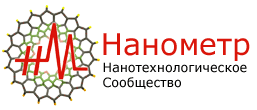Европейская Зимняя школа по органической химии состоится 29 января-3 февраля 2012 г. в Безаноне, Италия.
The European-Winter School on Physical Organic Chemistry (E-WiSPOC), at its sixth edition, constitutes an unique opportunity to gain expertise in the field of Organic Chemistry. If you are interested in WHY and not only HOW chemical reactions proceed you MUST attend this School. If you consider Physical Organic Chemistry an obsolete discipline you are wrong: it is more alive than ever!
In assessing research in Chemistry in the UK in 2003 the international advisory panel has strongly recommended to increase investment in Physical Organic Chemistry as the discipline that started as “the application of quantitative tools taken (historically) from physical chemistry to the solution of problems in mechanisms or in understanding properties has evolved to complex molecular problems, and is now being applied in studying catalysis, biochemistry, photochemistry, reactivity in the vapour phase, surface science, materials sciences, and other areas”. Indeed, when considering a nice article on molecular biology, drug design, nanosytems, catalysis we observe that the experimental interpretation is based on a Physical-Organic-Chemistry approach.
The School is part of the cultural initiatives of the Organic Division of the Italian Chemical Society and it has the endorsement of the Organic Division of EUCHEMS.
The topic of the 2012 edition is Catalysis.
WHEN AND WHERE
The 2012 edition of the European-Winter School on Physical Organic Chemistry (E-WISPOC 2012) will take place in Bressanone (South Tyrol, Italy) January 29- February 3, 2012. The School will be held at the "Greuner Baum" where lecturers and students will be also accommodated in a friendly environment.
SUPPORT
There will be fellowships both for Italian, rest-of-Europe and non-european participants.
The school is designed for PhD students, post-docs and for everyone who is beginning her/his career in the industry or academia and would like to know more about the fundamental aspect and the new developments of Physical Organic Chemistry. The School is centred every year on a different topic, which is analysed considering theory, instrumentation and reactivity-related aspects.
This year the main topic is Catalysis and the confirmed speakers are:
Martin Albrecht, Dublin (IE)
Isabel Arends, Delft (NL)
Matthias Beller, Rostock (D)
Carsten Bolm, Aachen (D)
Olga Bortolini, Ferrara (I)
Miquel Costas Salgueiro, Girona (ES)
Livius Cotarca, Lonigo (I)
Stuart Cantrill, London (UK)
Fahmi Himo, Stockholm (SE)
Alceo Macchioni, Perugia (I)
Feliu Maseras, Tarragona (E)
Per-Ola Norrby, Gцteborg (SE)
Sason Shaik, Jerusalem (IS)
Dieter Vogt, Eindhoven (NL)
Oral communications
During the Winter School there will be ten short (5 minutes with discussion) oral presentations by participants selected among those presenting a poster. The oral presentations will be chosen by the scientific committee. All participants must be ready to present their poster orally!
Poster communications
All participants are invited to present a poster communication concerning their current research activities.
The posters will be on display the entire time of the school. The maximum allowed dimensions are: height 90 cm (min) - 110 cm (max), width (80 cm max).
Three prizes will be awarded to the best posters presented.
Information
Dr. Cristiano Zonta
Dipartimento di Scienze Chimiche
Universitа di Padova
Via Marzolo, 1
35131 Padova
Fax: +39-049-8275239
e-mail: wispoc.chimica@unipd.it
Источник: http://www.chimica.unipd.it/wispoc/pubblica/index.htm

